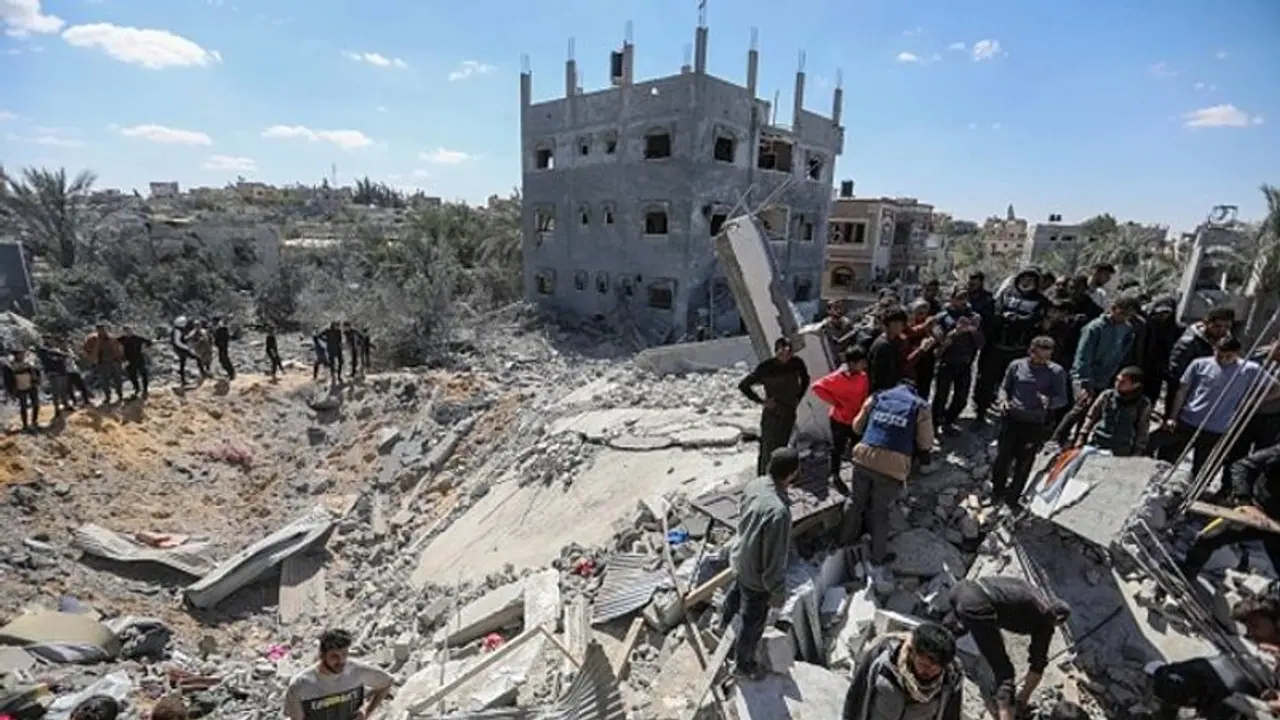In a significant move, the United States has submitted a draft resolution to the United Nations Security Council, calling for an "immediate ceasefire" in Gaza. This proposed resolution is directly tied to the release of Israeli hostages, marking a concerted effort to address the ongoing conflict in the region.
In a significant move, the United States has submitted a draft resolution to the United Nations Security Council, calling for an "immediate ceasefire" in Gaza. This proposed resolution is directly tied to the release of Israeli hostages, marking a concerted effort to address the ongoing conflict in the region.

According to reports, the resolution called Hamas a "terrorist organization", claimed it did not represent the people of Palestine and failed to address the demands made by the group during ceasefire negotiations.
The resolution reportedly calls for a ceasefire that "should lay the foundation for a sustainable ceasefire," once again "reiterating the vision of the two-state solution, with the Gaza Strip as part of the Palestinian State."
The resolution reportedly highlights the pressing necessity to enhance the distribution of humanitarian aid to civilians across the Gaza Strip. It reiterates the call for the removal of all barriers obstructing access to aid, emphasizing the need for its continuous flow through vital crossing points, such as the Karam Abu Salem Border Crossing.
Furthermore, the resolution reportedly advocates for the establishment of additional crossings and a maritime corridor to facilitate humanitarian operations effectively. It underscores the dire humanitarian situation in the Strip, condemning any forced displacement of its civilian population, which would contravene international law, including international humanitarian and human rights law.
The revised resolution also "rejects actions that reduce the territory of Gaza, including through the establishment officially or unofficially of so-called buffer zones, as well as the widespread, systematic demolition of civilian infrastructure."
The revised resolution reportedly raises apprehensions regarding the potential consequences of an Israeli ground incursion into Rafah, emphasizing the likelihood of exacerbating harm and displacement among civilians. Furthermore, it underscores the necessity of averting the escalation of conflict in the broader region, including along the Blue Line, synonymous with Israel's withdrawal boundary from southern Lebanon.
Significantly, the resolution reaffirmed the US' claims that Hamas is a "terrorist organization" noting that neither it nor "other terrorist and armed extremist groups in Gaza do not stand for the dignity or self-determination of the Palestinian people."
It is noteworthy that while the resolution repeatedly addresses the issue of Israeli captives, it overlooks the imperative to secure the release of Palestinian detainees held in Israeli occupation prisons or those subjected to detention and torture within Gaza, amidst an alarming rise in forced disappearances. This omission is significant, given the glaring humanitarian concerns and violations of international law associated with these circumstances.
This development follows Israeli Prime Minister Benjamin Netanyahu's dismissal of an appeal from US President Joe Biden to postpone a planned ground invasion of Rafah, where approximately 1.2 million Palestinians currently reside. Netanyahu conveyed his unwavering determination to eradicate the Palestinian Resistance during discussions with Israeli members of the Knesset, underscoring the gravity of the situation.
The Palestinian Resistance has restated its demand for an immediate and enduring ceasefire, emphasizing the necessity of halting Israeli aggression, providing relief and assistance to the people in Gaza, facilitating the return of displaced individuals to their homes, and ensuring the complete withdrawal of Israeli occupation forces from the Strip.
Furthermore, alongside extending military support to the Israeli occupation entity, the United States has utilized its veto power to block three draft resolutions, two of which proposed an immediate ceasefire in Gaza. This action was taken under the pretext of concerns about potentially undermining ongoing efforts to negotiate a cessation of hostilities and secure the release of Israeli captives.
Additionally, Washington has abstained from voting on two occasions regarding resolutions aimed at providing aid to Gaza and advocating for temporary halts in the conflict.
